








Harmony Place
Verified Center
This provider's information has been quality-checked by Recovery.com's Research Team for accuracy and completeness, including center verification through appropriate third-party organizations.
Treatment Focus
This center treats substance use disorders and co-occurring mental health conditions. Your treatment plan addresses each condition at once with personalized, compassionate care for comprehensive healing.
Primary Level of Care
Offering intensive care with 24/7 monitoring, residential treatment is typically 30 days and can cover multiple levels of care. Length can range from 14 to 90 days typically.
Treatment Focus
This center treats substance use disorders and co-occurring mental health conditions. Your treatment plan addresses each condition at once with personalized, compassionate care for comprehensive healing.
Primary Level of Care
Offering intensive care with 24/7 monitoring, residential treatment is typically 30 days and can cover multiple levels of care. Length can range from 14 to 90 days typically.
Provider's Policy
Harmony Place offers same day admission and is an in-network provider with Anthem, First Health Network, Multi-Plan, Beacon, HMC, Humana, Aetna, and Tricare. We accept all PPO insurance plans as well as some HMOs and EPOs. Regardless of your insurance coverage, Harmony Place offers additional payment plans & options – give us a call today to learn more about your options. Harmony Place does not accept Medicaid, Medicare, or state insurance.
Harmony Place
Harmony Place
About Harmony Place
Harmony Place has treated addiction and co-occurring mental health conditions for over 20 years, offering top-tier yet cost-effective care. They provide same-day admission for detox and residential treatment. Detox services are medically supervised and include 24/7 support from licensed nurses and medication-assisted treatment (MAT), ensuring a safe and effective start to recovery.
Focus on Whole-Person Healing
Harmony Place takes a holistic and evidence-based approach to recovery, focusing on potential rather than pathology. Their comprehensive treatment plans include therapies like cognitive behavioral therapy (CBT), dialectical behavior therapy (DBT), and eye movement desensitization and reprocessing (EMDR), alongside holistic modalities such as yoga, acupuncture, and massage to promote mind-body healing. Clients benefit from highly individualized care, including 3 weekly 1-on-1 therapy sessions, group therapy, couples and family therapy, and relapse prevention education. With a skilled team of licensed professionals, including physicians, psychiatrists, and therapists, Harmony Place provides a well-rounded environment for effective recovery.
Receive Support Long After Treatment
As part of aftercare, Harmony Place graduates can attend weekly on-site alumni meetings, virtual aftercare groups, and social events designed to foster connection and sobriety. Alumni also have opportunities to mentor current residents and outpatient clients, providing guidance and encouragement across all stages of recovery. With services like private online groups, fun sober activities, and mentorship opportunities, Harmony Place helps graduates avoid relapse and remain part of a supportive recovery community.
Enjoy a Serene Home Setting
Located on a private, tree-lined street in the San Fernando Valley, Harmony Place hosts up to 12 clients in each of their residences, with gender-specific sleeping quarters and shared treatment and recreational spaces. Clients enjoy gourmet chef-prepared meals, access to a fitness center, a swimming pool, a hot tub, and a rose garden featuring a one-of-a-kind treehouse. Weekly activities like yoga, massage, acupuncture, and adventure outings, combined with amenities such as outdoor lounges and nature access, create a holistic environment that fosters both physical and mental well-being.

Highlights from the Center
Highlights
These highlights are provided by and paid for by the center.
1-on-1 Counseling
Perfect for Professionals
On-site Medical Detox
Private Rooms Available
Center Overview
Treatment Focus
This center treats substance use disorders and co-occurring mental health conditions. Your treatment plan addresses each condition at once with personalized, compassionate care for comprehensive healing.
Joint Commission Accredited
The Joint Commission accreditation is a voluntary, objective process that evaluates and accredits healthcare organizations (like treatment centers) based on performance standards designed to improve quality and safety for patients. To be accredited means the treatment center has been found to meet the Commission's standards for quality and safety in patient care.

Harmony Place
Insurance Accepted
Cash Pay Rates
Estimated Cash Pay Rate
Center pricing can vary based on program and length of stay. Contact the center for more information. Recovery.com strives for price transparency so you can make an informed decision.




Recovery.com Verified Listing
Recovery.com verified that the name, location, contact information and license to operate for this treatment provider are valid and up-to-date.

Joint Commission Accredited

Licensed by California DHCS

NAATP Member
Recovery.com is an independent, third-party mental health resource. Verification does not imply endorsement and does not guarantee the quality of treatment services.
Meet Your Care Team

Jeffrey H. Schwartz
CEO & Founder
LCSW

David Cohen
Clinical Director
LCSW

Samantha L. Franke-Cano
Director of Aftercare
Certified Paralegal, B.A., RAD-T

Liz Margolis
Director of Client Relations
RADT
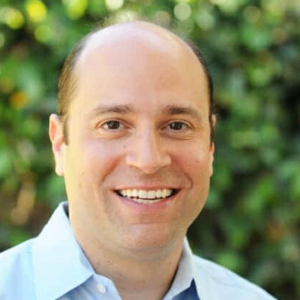
Andrew Greif
Therapist
LMFT
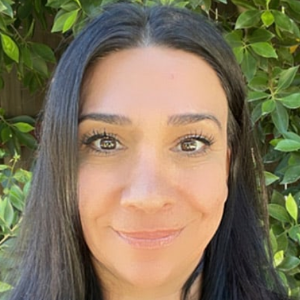
Dr. Haleh Malek
Therapist
PsyD
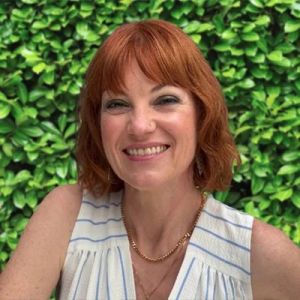
Jenn Ribeiro
Therapist
MSW, ASW

Sasha Samaranayake
Therapist
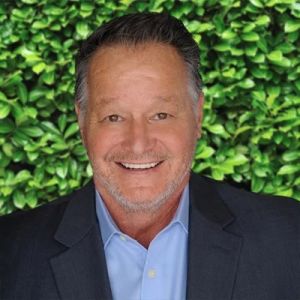
Randy Gutierre
Program Director, Harmony Place East
AMFT, CCDP

Dr.Julio Meza
Medical Director
M.D

Cynthia Prieto
Director of Nursing, Harmony Place

Nazanin Horri
Nursing Director, Harmony Place East

Cindy Gutierrez
Certified Nursing Assistant
CNA

Amos Van Landingham
Director of Admissions
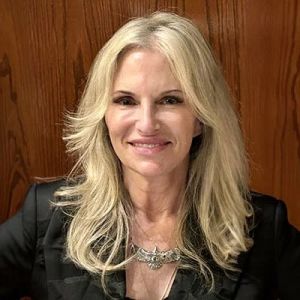
Ahbra Schiff
Director of Admissions

Nelson Murata
Admissions Coordinator

Marielle Brosner
Admissions Coordinator
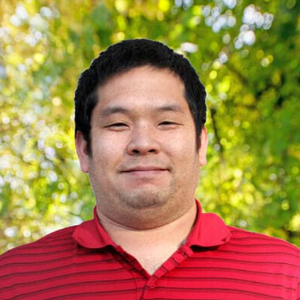
Jeff Kurokouchi
Facility Tech/Coordinator
RADT

Michelle Ramos
Administrative Assistant/Intake Coordinator
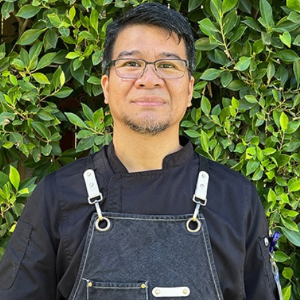
Dante Paniza
Head Chef

Makena Schwartz
Resident Advisor Supervisor
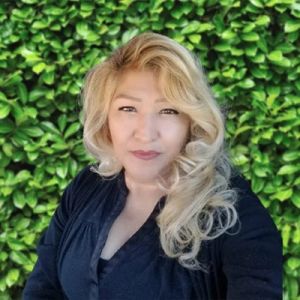
Priscilla Bustamante
Resident Advisor
Your Care Options
Specializations
Alcohol
Using alcohol as a coping mechanism, or drinking excessively throughout the week, signals an alcohol use disorder.
Detox
Detox fully and safely removes toxic substances from the body, allowing the next steps in treatment to begin with a clean slate.
Benzodiazepines
Benzodiazepines are prescribed to treat anxiety and sleep issues. They are highly habit forming, and their abuse can cause mood changes and poor judgement.
Co-Occurring Disorders
A person with multiple mental health diagnoses, such as addiction and depression, has co-occurring disorders also called dual diagnosis.
Executives
Executive treatment programs typically directly support the needs of people who manage businesses and may provide flexible schedules and office space to allow work during treatment.
Opioids
Opioids produce pain-relief and euphoria, which can lead to addiction. This class of drugs includes prescribed medication and the illegal drug heroin.
Residential
In a residential rehab program, patients live onsite, with access to daily treatment and 24-hour care. An average stay is 30-90 days.
Trauma
Some traumatic events are so disturbing that they cause long-term mental health problems. Those ongoing issues can also be referred to as "trauma."
Who We Treat
Older Adults
Addiction and mental health treatment caters to adults 55+ and the age-specific challenges that can come with recovery, wellness, and overall happiness.
Executives
Executive treatment programs typically directly support the needs of people who manage businesses and may provide flexible schedules and office space to allow work during treatment.
Young Adults
Emerging adults ages 18-25 receive treatment catered to the unique challenges of early adulthood, like college, risky behaviors, and vocational struggles.
LGBTQ+
Addiction and mental illnesses in the LGBTQ+ community must be treated with an affirming, safe, and relevant approach, which many centers provide.
Men and Women
Men and women attend treatment for addiction in a co-ed setting, going to therapy groups together to share experiences, struggles, and successes.
Midlife Adults
For adults ages 40+, treatment shifts to focus on the unique challenges, blocks, and risk factors of their age group, and unites peers in a similar community.
Professionals
Busy, high-ranking professionals get the personalized treatment they need with greater accommodations for work, privacy, and outside communication.
Treatment Services
Detox
Detox fully and safely removes toxic substances from the body, allowing the next steps in treatment to begin with a clean slate.
Residential
In a residential rehab program, patients live onsite, with access to daily treatment and 24-hour care. An average stay is 30-90 days.
Approaches
Evidence-Based
A combination of scientifically rooted therapies and treatments make up evidence-based care, defined by their measured and proven results.
Family Involvement
Providers involve family in the treatment of their loved one through family therapy, visits, or both–because addiction is a family disease.
Holistic
A non-medicinal, wellness-focused approach that aims to align the mind, body, and spirit for deep and lasting healing.
Individual Treatment
Individual care meets the needs of each patient, using personalized treatment to provide them the most relevant care and greatest chance of success.
Therapies
1-on-1 Counseling
Patient and therapist meet 1-on-1 to work through difficult emotions and behavioral challenges in a personal, private setting.
Art Therapy
Visual art invites patients to examine the emotions within their work, focusing on the process of creativity and its gentle therapeutic power.
Couples Counseling
Partners work to improve their communication patterns, using advice from their therapist to better their relationship and make healthy changes.
Eye Movement Therapy (EMDR)
Lateral, guided eye movements help reduce the emotional reactions of retelling and reprocessing trauma, allowing intense feelings to dissipate.
Family Therapy
Family therapy addresses group dynamics within a family system, with a focus on improving communication and interrupting unhealthy relationship patterns.
Massage Therapy
Massage therapy relieves physical and emotional tension, reduces pain, promotes relaxation, and improves emotion regulation.
Motivational Interviewing and Enhancement Therapy (MET)
This approach is based on idea that motivation to change comes from within. Providers use a conversational framework that may help you commit to recovery.
Conditions We Treat
Anxiety
Anxiety is a common mental health condition that can include excessive worry, panic attacks, physical tension, and increased blood pressure.
Bipolar
This mental health condition is characterized by extreme mood swings between depression, mania, and remission.
Depression
Symptoms of depression may include fatigue, a sense of numbness, and loss of interest in activities. This condition can range from mild to severe.
Post Traumatic Stress Disorder
PTSD is a long-term mental health issue caused by a disturbing event or events. Symptoms include anxiety, dissociation, flashbacks, and intrusive thoughts.
Trauma
Some traumatic events are so disturbing that they cause long-term mental health problems. Those ongoing issues can also be referred to as "trauma."
Substances We Treat
Alcohol
Using alcohol as a coping mechanism, or drinking excessively throughout the week, signals an alcohol use disorder.
Benzodiazepines
Benzodiazepines are prescribed to treat anxiety and sleep issues. They are highly habit forming, and their abuse can cause mood changes and poor judgement.
Co-Occurring Disorders
A person with multiple mental health diagnoses, such as addiction and depression, has co-occurring disorders also called dual diagnosis.
Cocaine
Cocaine is a stimulant with euphoric effects. Agitation, muscle ticks, psychosis, and heart issues are common symptoms of cocaine abuse.
Drug Addiction
Drug addiction is the excessive and repetitive use of substances, despite harmful consequences to a person's life, health, and relationships.
Ecstasy
Ecstasy is a stimulant that causes intense euphoria and heightened awareness. Abuse of this drug can trigger depression, insomnia, and memory problems.
Heroin
Heroin is a highly addictive and illegal opioid. It can cause insomnia, collapsed veins, heart issues, and additional mental health issues.
Psychedelics
Hallucinogenic drugs—like LSD—cause euphoria and increased sensory experiences. When abused, they can lead to depression and psychosis.
Languages
Aftercare
Care Designed for Your Needs
Personal Amenities
Amenities
Special Considerations
Executive Program
Addiction and mental health treatment for executives typically involves high discretion, greater technology access, and more private, 1-on-1 care.
Flexible technology policies
Centers with flexible technology policies allow professionals to stay in touch with work and give patients a greater sense of connection and normalcy.
Activities
Yoga
Yoga is both a physical and spiritual practice. It includes a flow of movement, breathing techniques, and meditation.
Learn More About the Center
Treatment Outcomes at Harmony Place
Learn about the outcome-measuring tool Harmony Place uses to ensure better treatment outcomes.
Ketamine Addiction Treatment
Find out about Harmony Place’s personalized support for recovery from ketamine addiction.
How to Manage Paying Bills While in Rehab
Discover tips for managing expenses while in treatment without sacrificing long-term recovery.
Harmony Place in Forbes
Read clinical director David Cohen’s contribution to a Forbes’ article on Kratom and its alternatives.
What people are saying
Treatment
4.6
Accommodations
4.6
Food & Nutrition
4.7
Value
4.7
Pros
- Beautiful Location (4)
- Excellent & Effective Treatment Programming (4)
- Gourmet & Nutritious Food (4)
- Friendly & Competent Staff (4)
James
Treatment in 2022 • (30 days) • Reviewed 01/26/23
Former Client
•Teacher
•California
Alexander
Treatment in 2023 • (20 days) • Reviewed 04/03/23
Former Client
•Admissions coordinator
•Los Angeles, CA
Joshua pierce
Treatment in 2020 • (45 days) • Reviewed 01/26/23
Former Client
•Pacific recovery society sober living homes
•Ridgecrest California
Karen
Treatment in 2020 • (30 days) • Reviewed 01/27/23
Former Client
•Healthcare Executive
•Chicago
GCT
Treatment in 2023 • (14 days) • Reviewed 02/02/23
Loved One of a Former Client





